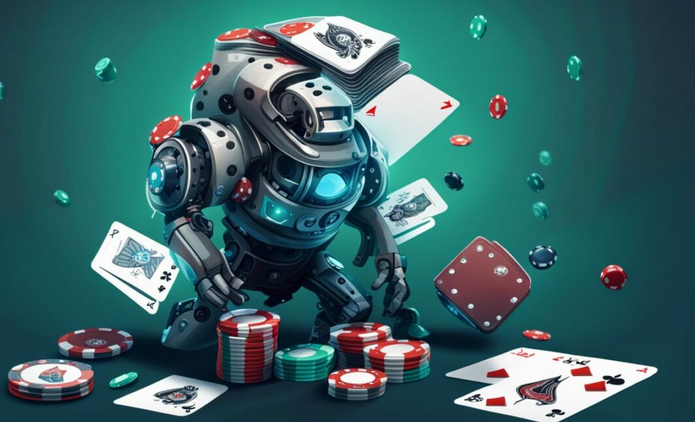In recent years, the intersection of poker and artificial intelligence (AI) has sparked significant interest and debate within the poker community. As AI technology continues to advance, researchers and developers are exploring new ways to apply machine learning algorithms and computational strategies to the game of poker. In this article, we’ll delve into the evolving relationship between poker and artificial intelligence, examining the impact of AI on the game and the potential implications for its future.

Introduction to Poker and Artificial Intelligence
Poker, a game of skill, strategy, and psychology, has long been a subject of fascination for AI researchers seeking to develop intelligent systems capable of competing against human players. Artificial intelligence, with its ability to analyze vast amounts of data and make strategic decisions, offers new possibilities for enhancing the complexity and sophistication of poker gameplay.
Evolution of AI in Poker
Over the past decade, significant progress has been made in the development of AI algorithms for playing poker. In 2017, the AI program Libratus made headlines by defeating top human players in a series of heads-up no-limit Texas Hold’em matches. Since then, AI researchers have continued to refine and improve their algorithms, achieving even greater levels of performance and sophistication.
Advantages of AI in Poker
AI offers several advantages in the context of poker gameplay. Unlike human players, AI systems can analyze vast amounts of data, calculate complex probabilities, and make optimal decisions based on mathematical models and game theory principles. Additionally, AI algorithms can learn and adapt over time, refining their strategies through experience and self-play.
Challenges and Limitations
While AI has demonstrated remarkable capabilities in playing poker, it also faces several challenges and limitations. One of the main challenges is the inherent uncertainty and unpredictability of poker, which makes it difficult for AI systems to accurately model opponent behaviour and adapt to changing game dynamics. Additionally, AI algorithms may struggle with the nuances of human psychology and emotional intelligence, which play a significant role in poker gameplay.
Implications for the Future of Poker
The integration of AI into poker has the potential to reshape the landscape of the game in various ways. AI-powered poker bots could serve as valuable training tools for players looking to improve their skills and learn advanced strategies. Furthermore, AI algorithms could contribute to the development of new variants of poker and innovative gameplay mechanics that push the boundaries of traditional poker norms.
Ethical Considerations
As AI technology continues to advance, it raises important ethical considerations and questions about fairness, transparency, and responsible gaming. The use of AI-powered poker bots in online poker platforms, for example, may raise concerns about cheating and the integrity of the game. Additionally, there are concerns about the potential impact of AI on the livelihoods of professional poker players and the broader poker community.
Conclusion
In conclusion, the integration of artificial intelligence into the world of poker represents an exciting frontier with vast potential for innovation and advancement. While AI algorithms have already achieved impressive feats in playing poker, there is still much to explore and discover about the intersection of technology and gameplay. By embracing the possibilities of AI and leveraging its capabilities responsibly, we can chart a course towards a future where poker evolves and thrives in exciting new ways.

